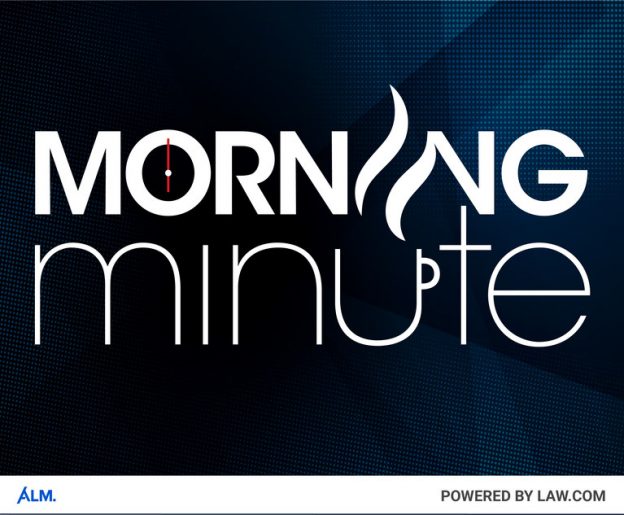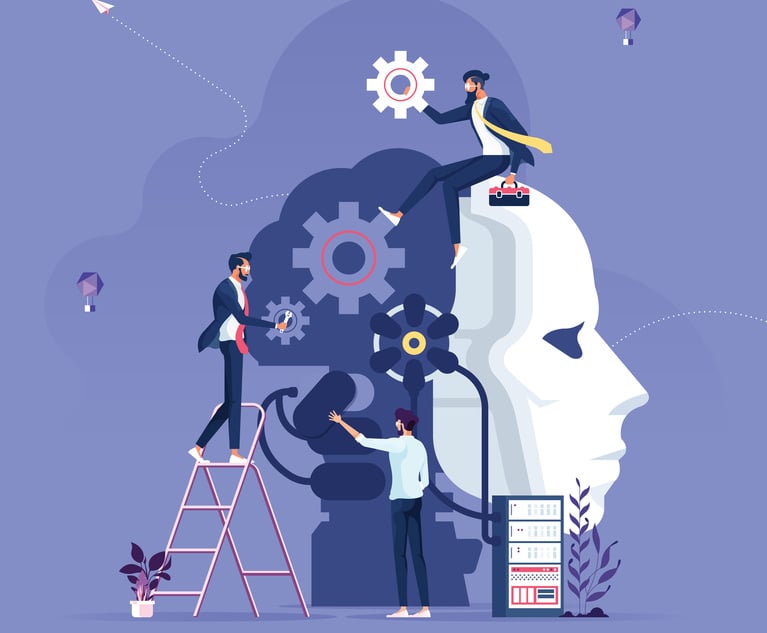The Morning Minute: Latest Big Law Layoffs Illustrate Inconsistency in Market
The news and analysis you need to start your day.
February 16, 2024 at 06:00 AM
4 minute read

Want to get this daily news briefing by email? Here's the sign-up.
WHAT WE'RE WATCHING
TOO MUCH, TOO FAST - Despite impressive gains at the top of the Am Law 200 charts and a mindset geared more toward growth, layoffs and cuts continue to rattle the industry. Productivity and utilization remain a problem, observers and analysts have told Law.com's Andrew Maloney , as some firms expect deal work to improve only "incrementally" and the tech sector in particular just hasn't shown enough resilience. Those assessments come as Fenwick & West told employees on Tuesday that it was laying off "just under" 10% of its professionals, including attorneys and staff. The firm cited a surge in demand from 2020 through early 2022 that caused Fenwick & West to hire "quite aggressively," said Richard Dickson, the firm's chair, in a memo viewed by Law.com. "It felt necessary at the time. But, with the benefit of hindsight, it represented a deviation from our core principle of managing for the long-term," Dickson said.
LEGAL ORGANIZATION - From the casinos on the Las Vegas Strip to Hollywood's writing rooms, workers are turning to their unions to seek protections against the risks that emerging technologies like genAI may pose to their jobs. Could a growing movement by employees to prepare for the impact of generative AI spread to an industry that hasn't traditionally been prone to unionization, like legal? As Law.com's Cassandre Coyer reports , in many ways, the legal industry is now at an inflection point. Stuck between the prospect of roles being transformed, if not entirely threatened, by the technology, an ongoing push toward business-oriented structural changes, and questions around the longevity of the billable hour, some believe this could be the industry's first real opportunity to meaningfully consider collective bargaining.
ON THE RADAR - Attorneys from Latham & Watkins and Morrison & Foerster have stepped in to represent OpenAI Inc., developer of the ChatGpt AI language generator and Dall-E AI image generator, and other defendants in a pending copyright class action. The suit, filed Dec. 27 in New York Southern District Court by Susman Godfrey and Rothwell Figg Ernst & Manbeck on behalf of the New York Times, accuses the defendants of using copyrighted news articles to train OpenAI's large language and generative artificial intelligence models. The case, assigned to U.S. District Judge Sidney H. Stein, is 1:23-cv-11195, The New York Times Company v. Microsoft Corporation et al. Stay up on the latest state and federal litigation, as well as the latest corporate deals, with Law.com Radar.
EDITOR'S PICKS
|
This content has been archived. It is available through our partners, LexisNexis® and Bloomberg Law.
To view this content, please continue to their sites.
Not a Lexis Subscriber?
Subscribe Now
Not a Bloomberg Law Subscriber?
Subscribe Now
NOT FOR REPRINT
© 2025 ALM Global, LLC, All Rights Reserved. Request academic re-use from www.copyright.com. All other uses, submit a request to [email protected]. For more information visit Asset & Logo Licensing.
You Might Like
View All
Internal GC Hires Rebounded in '24, but Companies Still Drawn to Outside Candidates
4 minute read
Dissenter Blasts 4th Circuit Majority Decision Upholding Meta's Section 230 Defense
5 minute read

From Laggards to Tech Founders: Law Firm Innovation Is Flourishing
Law Firms Mentioned
Trending Stories
- 1With DEI Top of Mind, Black Judges Discuss Growing Up During Segregation, Efforts to Diversify the Profession
- 2Big Law's Middle East Bet: Will It Pay Off?
- 3'Translate Across Disciplines': Paul Hastings’ New Tech Transactions Leader
- 4Milbank’s Revenue and Profits Surge Following Demand Increases Across the Board
- 5Fourth Quarter Growth in Demand and Worked Rates Coincided with Countercyclical Dip, New Report Indicates
Who Got The Work
J. Brugh Lower of Gibbons has entered an appearance for industrial equipment supplier Devco Corporation in a pending trademark infringement lawsuit. The suit, accusing the defendant of selling knock-off Graco products, was filed Dec. 18 in New Jersey District Court by Rivkin Radler on behalf of Graco Inc. and Graco Minnesota. The case, assigned to U.S. District Judge Zahid N. Quraishi, is 3:24-cv-11294, Graco Inc. et al v. Devco Corporation.
Who Got The Work
Rebecca Maller-Stein and Kent A. Yalowitz of Arnold & Porter Kaye Scholer have entered their appearances for Hanaco Venture Capital and its executives, Lior Prosor and David Frankel, in a pending securities lawsuit. The action, filed on Dec. 24 in New York Southern District Court by Zell, Aron & Co. on behalf of Goldeneye Advisors, accuses the defendants of negligently and fraudulently managing the plaintiff's $1 million investment. The case, assigned to U.S. District Judge Vernon S. Broderick, is 1:24-cv-09918, Goldeneye Advisors, LLC v. Hanaco Venture Capital, Ltd. et al.
Who Got The Work
Attorneys from A&O Shearman has stepped in as defense counsel for Toronto-Dominion Bank and other defendants in a pending securities class action. The suit, filed Dec. 11 in New York Southern District Court by Bleichmar Fonti & Auld, accuses the defendants of concealing the bank's 'pervasive' deficiencies in regards to its compliance with the Bank Secrecy Act and the quality of its anti-money laundering controls. The case, assigned to U.S. District Judge Arun Subramanian, is 1:24-cv-09445, Gonzalez v. The Toronto-Dominion Bank et al.
Who Got The Work
Crown Castle International, a Pennsylvania company providing shared communications infrastructure, has turned to Luke D. Wolf of Gordon Rees Scully Mansukhani to fend off a pending breach-of-contract lawsuit. The court action, filed Nov. 25 in Michigan Eastern District Court by Hooper Hathaway PC on behalf of The Town Residences LLC, accuses Crown Castle of failing to transfer approximately $30,000 in utility payments from T-Mobile in breach of a roof-top lease and assignment agreement. The case, assigned to U.S. District Judge Susan K. Declercq, is 2:24-cv-13131, The Town Residences LLC v. T-Mobile US, Inc. et al.
Who Got The Work
Wilfred P. Coronato and Daniel M. Schwartz of McCarter & English have stepped in as defense counsel to Electrolux Home Products Inc. in a pending product liability lawsuit. The court action, filed Nov. 26 in New York Eastern District Court by Poulos Lopiccolo PC and Nagel Rice LLP on behalf of David Stern, alleges that the defendant's refrigerators’ drawers and shelving repeatedly break and fall apart within months after purchase. The case, assigned to U.S. District Judge Joan M. Azrack, is 2:24-cv-08204, Stern v. Electrolux Home Products, Inc.
Featured Firms
Law Offices of Gary Martin Hays & Associates, P.C.
(470) 294-1674
Law Offices of Mark E. Salomone
(857) 444-6468
Smith & Hassler
(713) 739-1250









